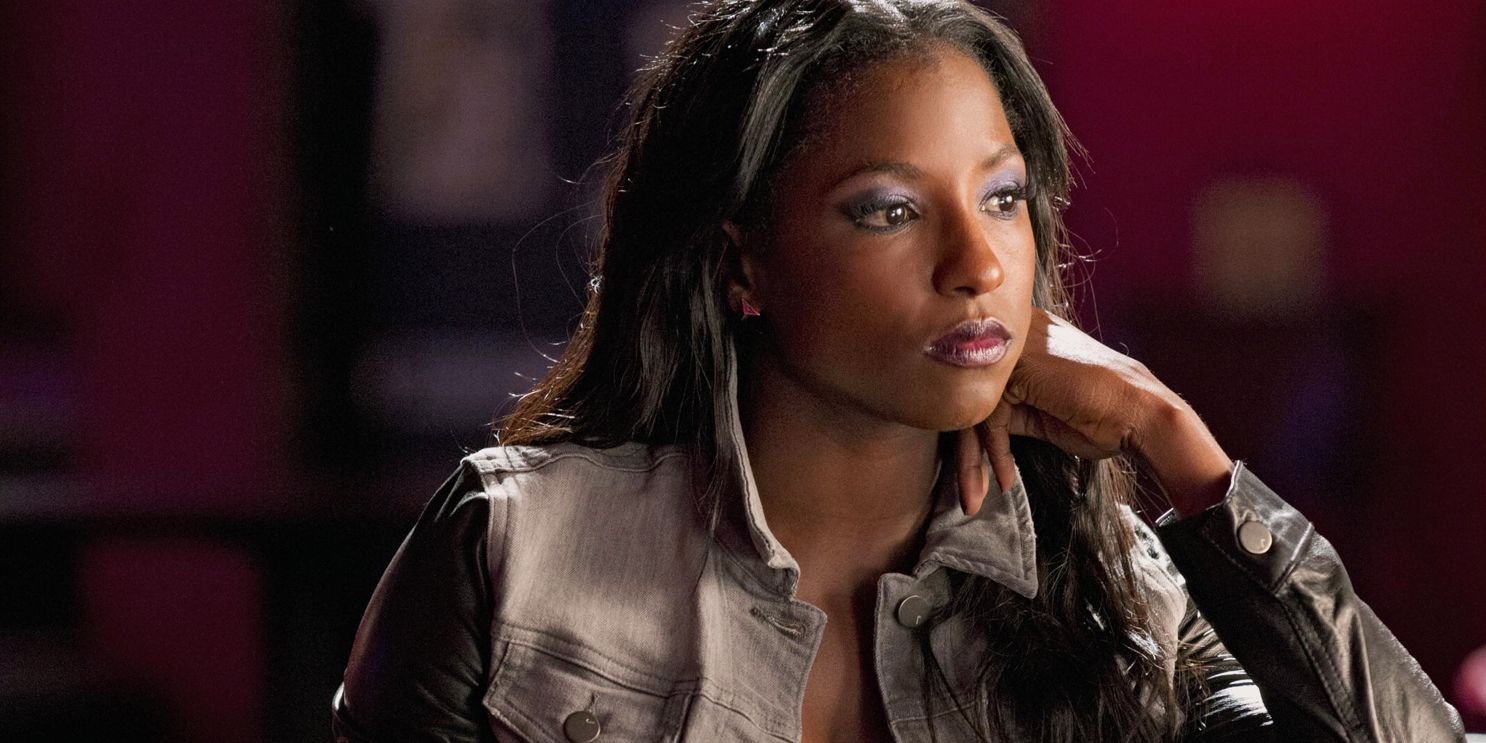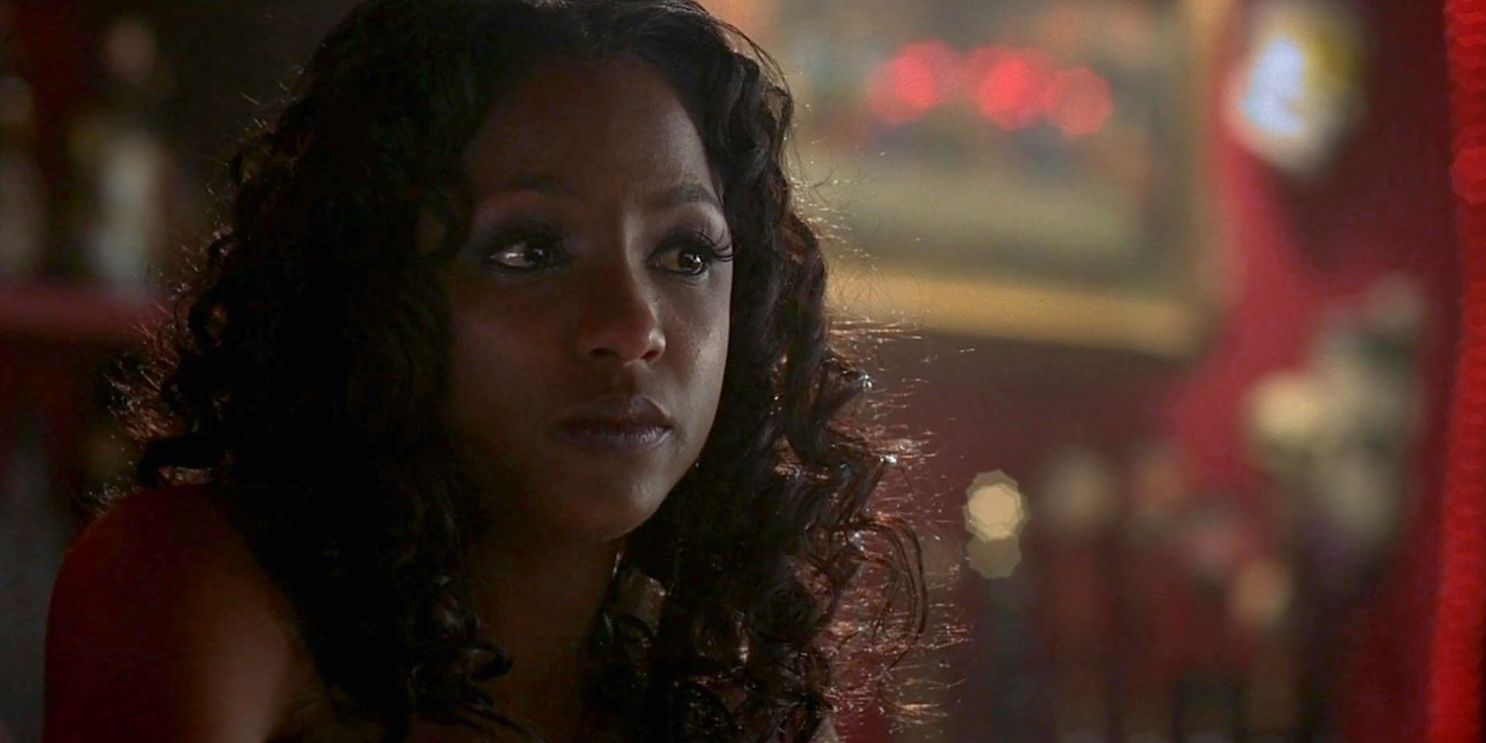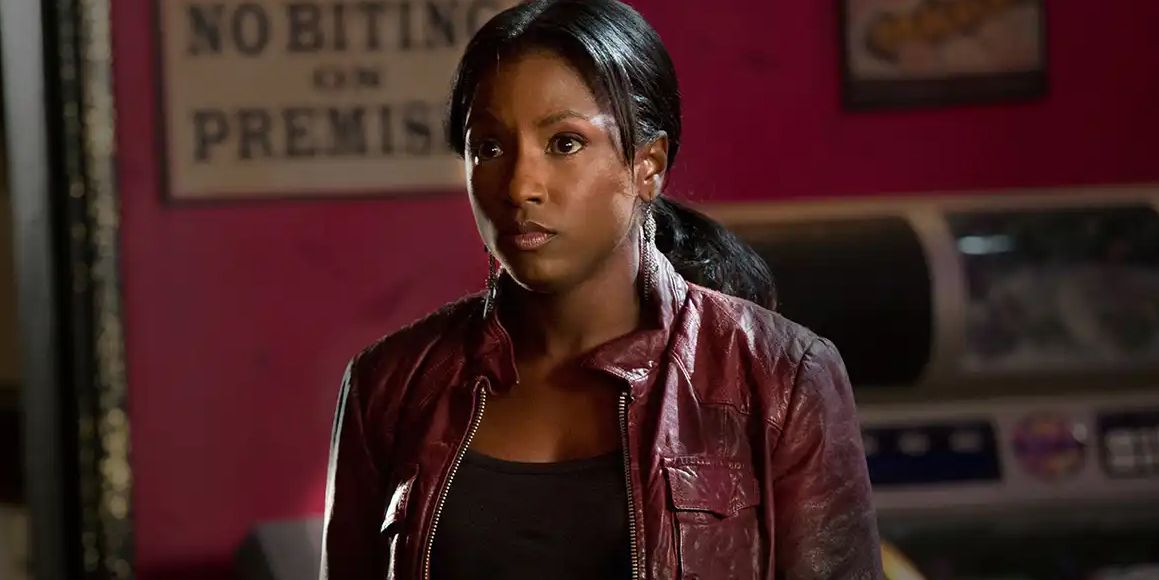When HBO adapted Charlaine Harris' Southern Vampire Mysteries novels into True Blood, it made a few key changes to the core cast. One such change was the role of Tara Thornton. In the books, Tara is a side character; She's a white woman who lives in Bon Temps, runs a dress shop and appears intermittently, usually to further Sookie's story. However, Tara in the show is so much more than that.
From the first episode of True Blood, Tara (played by Rutina Wesley, a Black actress) is one of the main players. She's Sookie's (Anna Paquin) best friend and Lafayette's (Nelsan Ellis) cousin. She struggles to hold down a job despite her intelligence because her temper often gets her in trouble with authority figures. Not to mention her abusive, alcoholic mother Lettie Mae (Adina Porter) is a weight around her neck.
Tara consistently has a terrible time in True Bloods' first four seasons. She's subject to her mother's abuse and casual racism that has characterized her life.
She's manipulated by Season 2's big bad Maryann (Michelle Forbes), mourns the death of her boyfriend Eggs (Mehcad Brooks) and gets kidnapped and abused by a vampire named Franklin (James Frain). For obvious reasons, she distrusts vampires, which often pits her against Sookie.
She has a brief interlude of happiness between Season 3 and 4, living in New Orleans and dating Naomi (Vedette Lim), but then she gets dragged back to Bon Temps. Lafayette and his boyfriend Jesus (Kevin Alejandro) bring her to a Wicca circle run by Marnie (Fiona Shaw), a necromancer with an anti-vampire agenda that initially appeals to Tara. She again goes up against Sookie and the "good" vampires and breaks up with Naomi for Naomi's own safety. By the end, though, she abandons Marnie's cause and once again makes up with Sookie. When Debbie (Brit Morgan) breaks into Sookie's house to kill her, Tara intervenes and gets shot in the head in the last moments of the season.
If that had been the end of Tara, it would have been bad. Sure, she was integral to the narrative for four seasons, and it would have been a "heroic" death, but she still would have been a Black woman -- one who'd been abused and wronged -- who died to protect the white heroine. Instead, Season 5 begins with Pam (Kristin Bauer van Straten) showing up at Sookie's house and being grudgingly convinced by Sookie and Lafayette to turn Tara into a vampire to save her life.
Tara initially hates being a vampire -- given her anti-vampire biases -- and even tries to end her own life. She's furious that Sookie and Lafayette got Pam to turn her without her consent (which raises interesting discussion points), and she's especially piqued that Pam is her Maker since she and Pam have never gotten along. But it soon becomes clear that this was the best thing that could have happened to Tara. Now, she works at Fangtasia, clearly thrives as a vampire, bonds with Jessica (Deborah Ann Woll) and gets to tell off people who hurt her, including a racist former classmate and her abusive mother. Pam teaches Tara the ins and outs of being a vampire, and the two of them genuinely come to care about each other. When they finally kiss, it feels triumphant, like it's paving the way for an epic new relationship.
However, the thread is dropped in Season 6. They sleep together once, then get separately dragged off to a different vampire jail. Once they're out, Pam flees to look for Eric (Alexander Skarsgard), who's disappeared, abandoning Tara and Eric's new progeny Willa (Amelia Rose Blaire). Tara is treated as a side character through the entire sixth season and gets unceremoniously killed off-screen in a vampire battle in the first five minutes of Season 7. To add insult to injury, Tara's ghost repeatedly appears in True Blood's last season for the expressed purpose of forgiving Lettie Mae from beyond the grave, which completely ignored all of Tara's development and narrative agency.
Tara didn't often get the respect she deserved. She went from one traumatic event to another. While sometimes writing her as a Black woman provided opportunities for commentary on racial injustice, it just as often led to uncomfortable imagery and stereotyping. Fans and critics alike were unnecessarily cruel to her -- Slate article even celebrated the decision to kill her off. Nonetheless, she was an integral part of the show and a fascinatingly nuanced female character. As such, one of True Blood's biggest missteps was giving her the chance at happiness and then taking it away.



